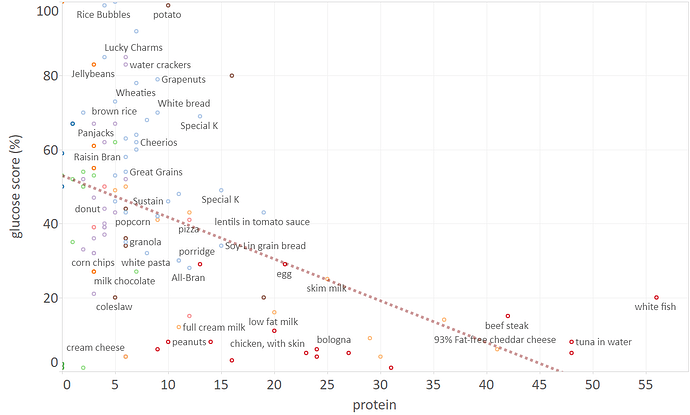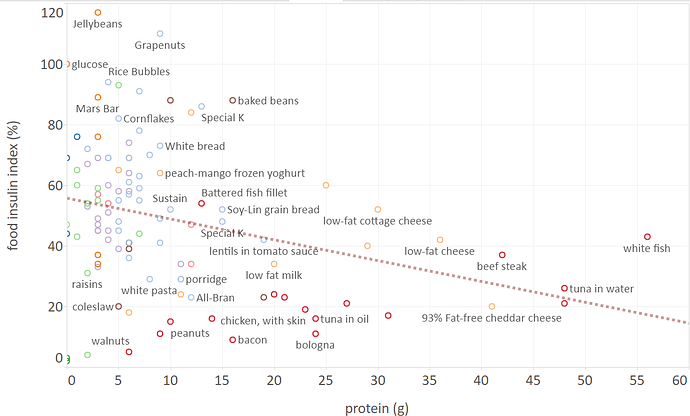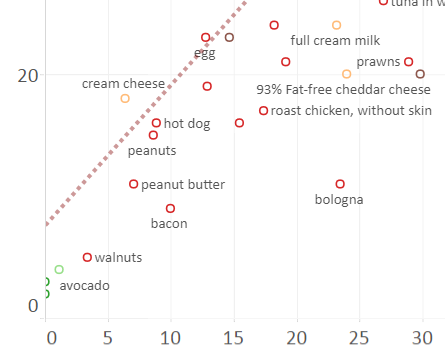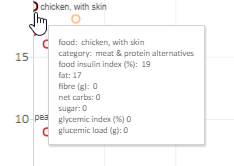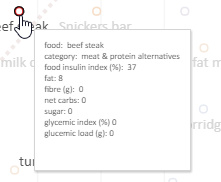I think there is merit to the idea of an insulin index but I’d like to see it pursued by people without any conflicts of interest. And it also needs to be done for a wider range of unprocessed foods. So far the focus seems to have been on testing highly processed crap.
Kirstine Bell, a student of Jennie Brand-Miller, does have some interesting results in her PhD thesis. In general it appears that fat when eaten with protein reduces the insulin response. Fatty meats have lower insulin index scores than lean meats, a nice counter argument the next time you hear someone advocating “heart healthy lean meats”. And fat when eaten with carbs makes the total insulin response significantly greater. This may be a factor in the demonization of fat. If you are eating a high carb diet adding fat to it may make things worse, at least if you aren’t replacing carbs with fat.
But other than contributing a little general understaning to how things work, I don’t think charts of numbers like these are going to be the best way for any of us to choose what to eat. In addition to insulin there are many other factors in play like leptin, thyroid, etc. and we each have our unique balance of responses. There’s really no substitute for tracking how you respond to what you do.
For myself, I have found I have little tolerance for sugars and flours and processed foods containing them even in modest amounts. Fruit juices are also bad. But I can eat a lot of carbs from veggies, even things like garlic and onions with little problem, especially when I’m in a caloric deficit. But when I’m eating a caloric excess I have to be strict about keeping carbs and protein restricted.



